Ahead of the release of her album Prism on the Rubicon Label, violinist Fenella Humphreys shares how varied the musical experience can be when working with different composers, and how rewarding the end result can be
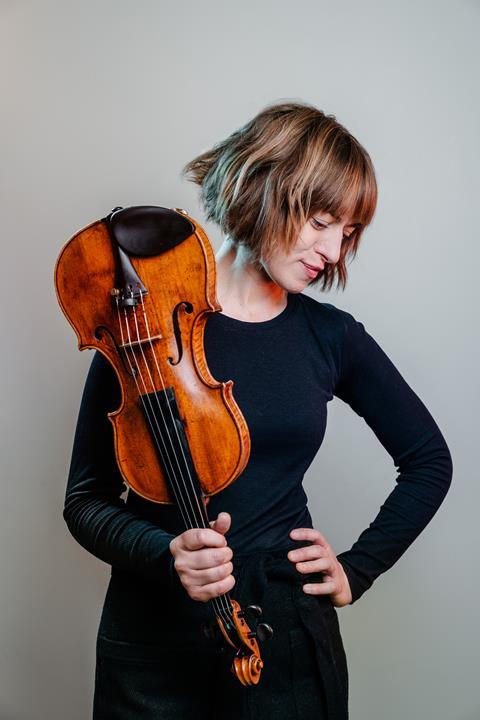
Discover more Featured Stories like this in The Strad Playing Hub
There’s nothing quite like working with living composers.
Being there right from the creation of a piece of music, bringing it to audiences for the first time, seeing it growing and developing - every time that feels like an immense privilege.
New works come to life in such different ways. It may be I’m commissioning something for a specific programme where I have broad but specific ideas about where and how the music needs to fit. But often new works will arrive in my inbox gifted by the composer, sometimes totally unexpected.
In 2020 I gave a series of lockdown live-streamed solo violin performances from my living room. Very quickly I started receiving scores of new works to perform, particularly from young composers. It was such an unusual time where you could receive a new work one day and be able to give its world premiere the next. A handful of these pieces, by Sarah Frances Jenkins, Bethan Morgan-Williams, Cameron Biles-Liddell and Sarah Lianne Lewis form the backbone of my new album, Prism.
In situations where I commission the music, the process always starts with a conversation. Mostly I know the composers who write for me, but just occasionally I’ll ask someone whose music I love and respect, but whom I’ve never met before, for example the first time I worked with Sally Beamish, Adrian Sutton and Peter Maxwell Davies. They all wanted to meet and chat, to get an idea of who they were writing for. The conversations with those three were broad, ranging from nature and architecture to Scandinavian folk music and far beyond. I still find it fascinating the way with each of them I can see in the music how the conversations impacted their writing.
These conversations are then followed on my part by months of fundraising to make the collaboration possible. It’s a frustrating chicken and egg situation often fraught and full of anxiety. In order to qualify for most funding, you need to have performances or recordings in place. But arranging performances of something that doesn’t exist and that you have no way of financing yet involves a massive amount of trust and blind faith. You just have to believe that somehow you will find the money for the commission fees from somewhere.
I think it’s fair to say there are as many approaches to collaboration as there are composers. They each have their own unique expectations and ways of working, each bringing its different joys and challenges.
With some composers I’ll receive a trail of emails or whatsapps with little fragments of a score. Sometimes it will even just be a couple of notes, or queries about how something might sound or work under the fingers. I’ll return a very basic recording. Gradually I’ll see a work develop, change shape. Sometimes those fragments will end up being central to a work, sometimes they disappear completely.
But then with other composers I’ll hear nothing until I receive the full score, which is a different kind of exciting.
Mostly I’ll get to workshop the music with the composer in some way. In the past if we couldn’t find ourselves in the same place that would involve recording the music for them, and then either a barrage of emails or a long phonecall or three. With Zoom it feels far more human now, especially when you don’t know the composer all that well. But it’s always nicer in person when it’s possible. With some composers we use this time really just to check corners, and for me to feel I fully understand everything both musically and technically. At the other end of the scale a workshop can send a composer in a totally new direction with the music, resulting in a new score.
One of the works on Prism is Contemplations by Cameron Biles-Liddell. Back in the summer of 2020 the day before my final livestream, Cameron sent me the score of a little suite for solo violin. It was beautiful music, and I premiered one movement in the final concert. But I was just in the middle of a solo project based around caprices so it took me a while to find the right opportunity to programme it. In the meantime I finally met and worked together with Cameron at Cheltenham Festival’s Composers’ Academy. When I told him I was planning to record and programme his solo piece he asked to revise it extensively first, having got to know my playing so much better in Cheltenham. The revised Contemplations is a far bolder work, exploring so much more of the extremities of colour you can create on a violin. Since recording it for Prism, it’s really interesting now to go back and see how it started out, and how the music has grown, all because of a few days working on a different piece of music.
I always find it interesting to see the approaches of different composers after the workshopping point too. Some composers don’t even want to come to a rehearsal before the concert, feeling the music is in my hands now and they’re happy for me to take it in whichever direction I feel is right. This moves through every type of engagement to composers who are keen to discuss musical and technical possibilities right up to the final rehearsal.
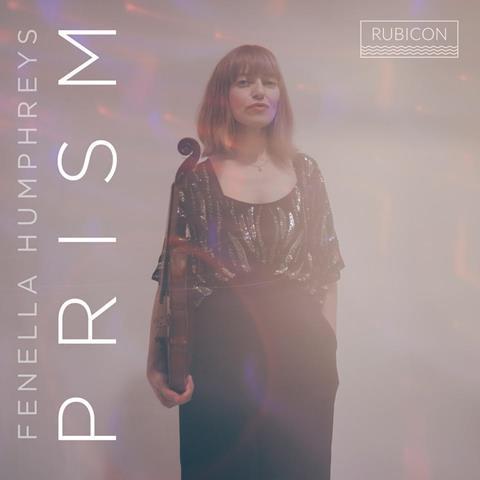
Prism includes so many different sorts of collaborations. There are gifts such as the music by Bethan, Cameron and Michael Small, and works not written specifically for me but sent to me by the composer such as Cheryl Frances-Hoad’s pieces Entrance Music & Exit Music, or in the case of Peter Maxwell Davies’s A Last Postcard from Sanday, sent posthumously by Ian Mylett at his publisher Schott Music. There is music I simply found and fell in love with that involved no collaboration at all like the works by Jessie Montgomery, Caroline Shaw and George Walker. Some are arrangements I made for myself. Then there’s a hybrid: Sarah Frances Jenkins’ Tincture of the Skies began life as a single movement commissioned by Tŷ Cerdd and BBC NOW. After its premiere Sally Beamish sent the music to me and introduced me to Sarah, and I performed it in a livestream. In turn, George Vass, director of Presteigne Festival was so taken by the single movement that he commissioned Sarah to extend it to a three-movement work for me to perform at the festival. It’s this final larger scale work that I recorded for Prism.
I can’t imagine living in a world where collaborating with composers isn’t central to my life. There’s nothing better than the challenges and exhilaration of being part of the journey of a piece of music right from the germ of an idea through to its premiere and beyond.
Fenella Humphreys’ Prism album will be released on 26 April on the Rubicon Label. Watch the trailer video here:
Read: ‘Paganini’s Caprices can actually be fun!’: Violinist Fenella Humphreys
Discover more Featured Stories like this in The Strad Playing Hub
The number one source for playing and teaching books, guides, CDs, calendars and back issues of the magazine.
In The Best of Technique you’ll discover the top playing tips of the world’s leading string players and teachers. It’s packed full of exercises for students, plus examples from the standard repertoire to show you how to integrate the technique into your playing.
The Strad’s Masterclass series brings together the finest string players with some of the greatest string works ever written. Always one of our most popular sections, Masterclass has been an invaluable aid to aspiring soloists, chamber musicians and string teachers since the 1990s.
American collector David L. Fulton amassed one of the 20th century’s finest collections of stringed instruments. This year’s calendar pays tribute to some of these priceless treasures, including Yehudi Menuhin’s celebrated ‘Lord Wilton’ Guarneri, the Carlo Bergonzi once played by Fritz Kreisler, and four instruments by Antonio Stradivari.

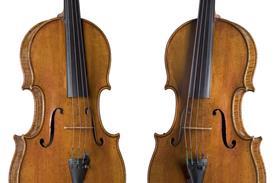


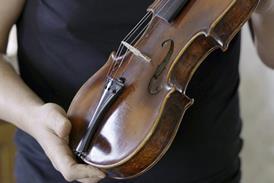




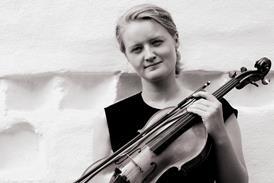



























No comments yet